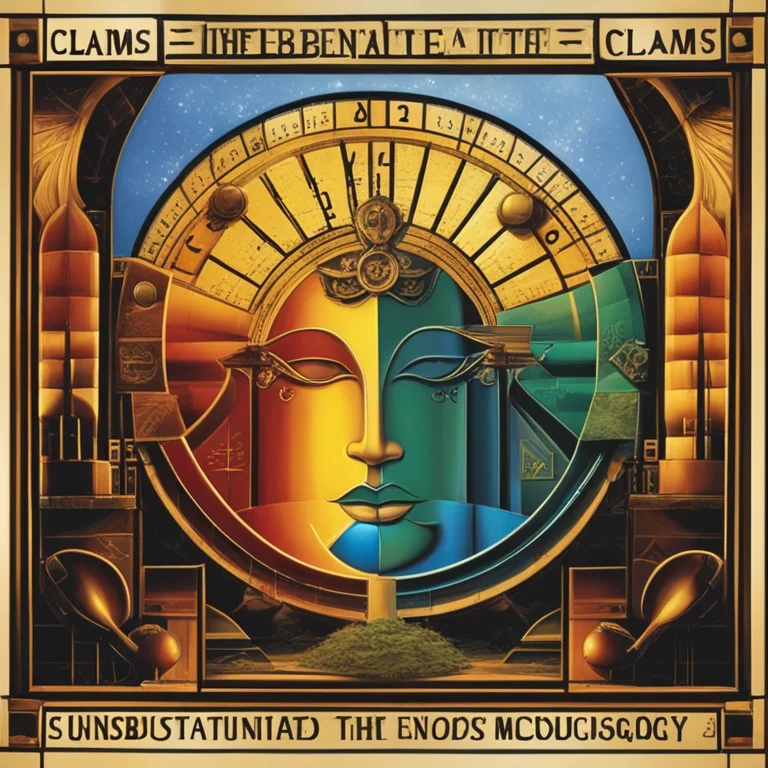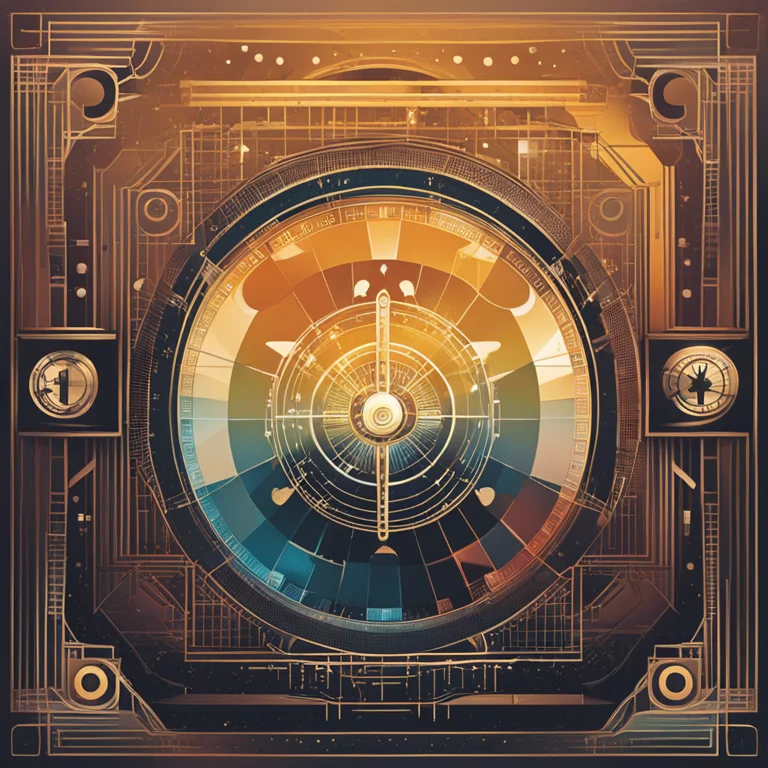
The Fallacies of Numerology: A Critical Perspective
Investigate the unscientific basis of numerology and understand why it’s considered a form of pseudoscience without factual evidence.
article by Sofia Ferguson
Introduction to Numerology Skepticism
Numerology, an ancient belief system based on the mystical significance of numbers, continues to captivate many. However, in our modern age of science and empirical evidence, its foundations appear to be on shaky ground. Numerology advocates assert that numbers assigned to letters in names, dates of birth, and other personal identifiers can influence an individual's life, dictate future outcomes, and even sway personality traits. But as we advance into 2024 and beyond, it becomes increasingly crucial to distinguish between charming antiquity and scientific validity. This article aims to highlight why numerology, despite its popularity, lacks the credibility and evidence required to be taken seriously within scientific circles.

Unsubstantiated Claims and Methods
The primary issue with numerology is its complete lack of empirical support. Unlike fields such as psychology or sociology that base their theories on rigorous research and data, numerology hinges on a belief system that does not adhere to scientific methodology. Its practices often include arbitrary systematisation of numbers and subjective interpretation, which fail to produce consistent, reliable results. For instance, the various methods of calculating a 'life path number' can differ from one numerologist to another, leading to contradictory outcomes for the same individual – a clear sign of an unreliable discipline.

The Forer Effect: Personalized Ambiguities
The appeal of numerology can be partially explained by the Forer effect, or the tendency of individuals to perceive vague, general statements as highly accurate for them personally. This cognitive bias is also why horoscopes and fortune telling can seem uncannily precise. Numerology readings typically provide broad and universal reflections that can be applied to anyone, creating the illusion of personalization and accuracy. As understanding of cognitive biases expands, it further discredits numerological practices, exposing their reliance on psychological tricks rather than factual evidence.

Lack of Scientific Mechanism
Another critical flaw in numerology is the absence of a plausible mechanism through which numbers could possibly influence personal destiny or traits. Science operates on cause-and-effect principles that can be observed, tested, and replicated. Numerology, unfortunately, lacks such a framework. It does not provide a rational theory or clear causal pathway that explains how specific numbers can wield such significant impact on one’s life. This lack of a scientific mechanism separates numerology from disciplines that have theoretical and practical foundations.

Cultural and Historical Inconsistencies
The discrepancies between numerological systems across cultures and history further undermine its credibility. Different civilizations have developed their own versions of numerology, often with contrasting interpretations and values assigned to numbers. If numerology were a universal truth, we would expect more consistency rather than a tapestry of beliefs that vary widely with geographical location and time period. This cultural relativity suggests that numerology is less a universal fact and more a human construct influenced by societal and historical contexts.
The Challenge of Replicability
In science, replicability is a cornerstone, ensuring that findings are consistent across different studies and contexts. Numerology does not withstand this level of scrutiny. Individual numerologists may provide unique, non-repeatable readings that defy verification. In any scientific field, this lack of replicability would be a red flag, highlighting the subjective nature of the practice and bringing its validity into question. Without the ability to replicate results, the case for numerology as a reliable source of insight weakens significantly.
Conclusion: Embracing Rational Skepticism
As we rely more on data and scientific evidence to guide our understanding of the world, it becomes essential to approach subjects like numerology with rational skepticism. While numerology might offer comfort or entertainment to some, proclaiming it as a serious tool for personal insight or prediction is misleading. It is a relic of a bygone era when mysticism was intertwined with daily life, lacking the rigor and substantiation demanded by today's standards of knowledge and truth.
Published: 1/11/2024
Modified: 1/11/2024
More predictions
Come back here soon to learn more about yourself and your future


Compute Your Numerology Life Path Number
Learn how to compute your life path number in numerology to gain insight into your life's purpose and potential trajectories.


Between Virgo's & Libra's Compatibility
Discover the dynamic relationship between Virgo and Libra in love, friendship, and work.


The Art of Compatibility Synastry
Discover the intricacies of relationship dynamics through the lens of compatibility synastry in astrological chart comparison.